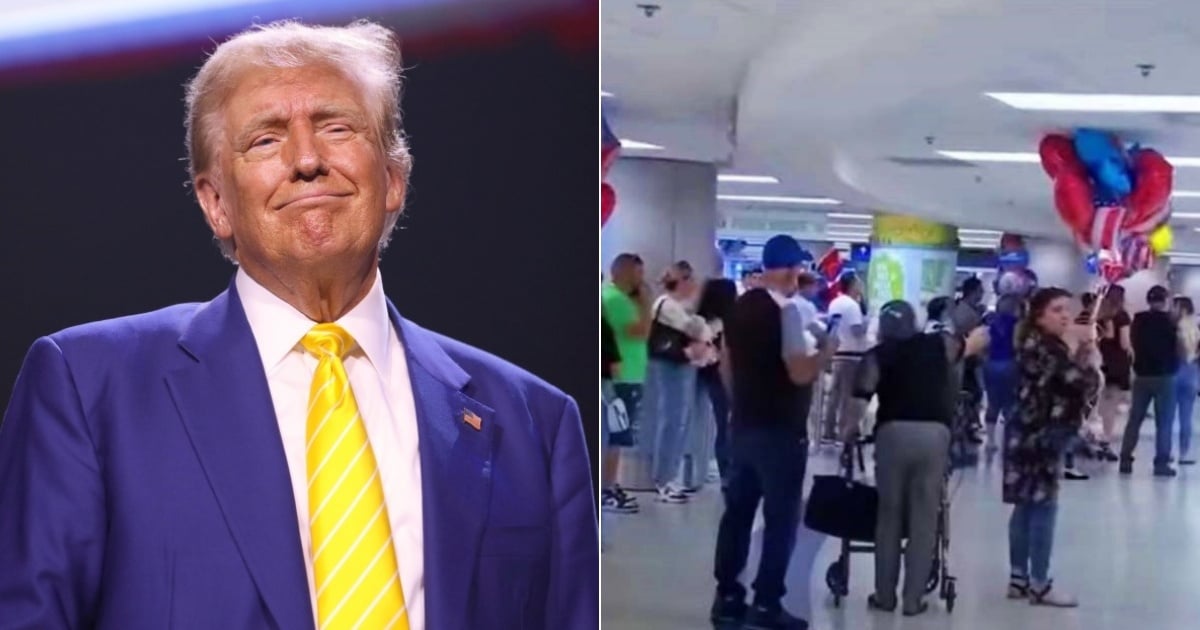What happens next? This is the pressing question for thousands of Cubans now left vulnerable following Friday's announcement that the Supreme Court has allowed the Trump administration to rescind the temporary legal status granted to over 500,000 immigrants by the Biden administration. The implications are significant; with the revocation of the parole, affected individuals will lose their work permits and become undocumented, making them subject to deportation. This was highlighted by journalist Mario J. Pentón immediately after the news broke.
However, many aspects remain unclear, requiring immigration lawyers to clarify these issues in the coming hours and days as events unfold. One lingering question is whether the applications for residency under the Cuban Adjustment Act will be halted for those in the process.
Impact on Cuban Immigrants
How many Cubans will lose their legal status due to the termination of the humanitarian parole? Initially, in late March, when the revocation was first announced, it was estimated that around 26,000 Cubans would be legally unprotected in the United States. This figure, calculated by journalist Wilfredo Cancio for Café Fuerte, included island citizens who entered the U.S. with humanitarian parole after March 2024. At that time, these Cubans had not yet met the requirement of one year and one day of residence in the U.S. necessary to qualify under the Cuban Adjustment Act (CAA).
Supreme Court Shatters Hopes for Humanitarian Parole Beneficiaries
On Friday, the court granted an emergency request by Homeland Security Secretary Kristi Noem, terminating President Joe Biden's program that allowed over half a million people from Cuba, Haiti, Nicaragua, and Venezuela to live and work temporarily in the United States. The brief order noted that liberal justices Ketanji Brown Jackson and Sonia Sotomayor dissented, with Jackson expressing concern over the "devastating consequences" of abruptly disrupting the lives and livelihoods of nearly half a million non-citizens while their legal claims were pending.
The administration challenged a ruling by federal district judge Indira Talwani in Massachusetts, which stated the government could not revoke each person's status without an individualized determination. This decision is on hold pending further litigation.
The Trump Administration's Challenge
In early May, President Donald Trump's administration filed an emergency appeal to the U.S. Supreme Court to overturn the judicial decision preventing the premature termination of the humanitarian parole program. Initially established during President Joe Biden's tenure, the program allowed individuals from these countries to enter the U.S. by air with financial backing and reside legally for two years with work authorization. However, it was among the first programs reversed by Trump upon taking office.
The Trump administration argued that the Boston district court's decision—blocking the mass elimination of the program—interfered with its executive authority on immigration and foreign policy. The ruling by Judge Indira Talwani had given hope to parole beneficiaries, stating that the government could not broadly revoke humanitarian parole without individual case reviews, as required by law. The administration claimed that maintaining the program undermined federal efforts to deter irregular border crossings and hindered expedited deportation enforcement.
FAQs on Supreme Court's Parole Revocation for Cubans
What does the revocation of humanitarian parole mean for Cubans?
The revocation means that affected Cubans will lose their work permits and become undocumented, making them vulnerable to deportation.
How many Cubans are affected by the Supreme Court's decision?
Approximately 26,000 Cubans who entered the U.S. after March 2024 with humanitarian parole could lose their legal status.
What was the Biden administration's humanitarian parole program?
The program allowed individuals from Cuba, Haiti, Nicaragua, and Venezuela to enter the U.S. legally for two years with work authorization.
Why did the Trump administration oppose the humanitarian parole program?
The Trump administration argued that the program interfered with its immigration and foreign policy authority and undermined efforts to curb irregular border crossings.
